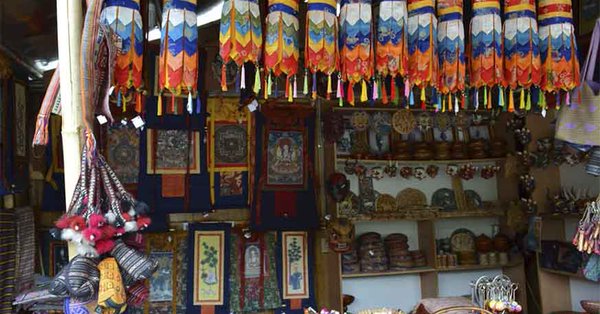Dastkari Haat 33rd edition starts in Delhi; crafts, textiles by over 180 artisans

- Country:
- India
A yellow band, tied to the arms of visitors and organisers of the 15-day Dastkari Haat Crafts Bazaar that opened here on Tuesday, represents the silent protest of Indian craftspeople against substitution of the hand-made, and their demand for a dedicated bazaar in the capital.
The 33rd edition of the Bazaar, which hosts traditional hand-made crafts, art and textiles by over 180 artisans from the country, is taking place in Dilli Haat here -- a space long-contended for its occupants and sellers.
Jaya Jaitly, former Samata Party president, handicrafts curator, and founder of the Bazaar's organiser Dastkari Haat Samiti, reiterated the demand that Dilli Haat is retained as a "genuine marketplace for craftspeople". "There are many layers of attack on the handmade sector, not just by the mills but also digital technology. Craftspeople need spaces like Dilli Haat to protect themselves.
"Malls are branded places. There are all kinds of bazaars and mandis. Why not one genuine bazaar for craftspeople, in the face of so much mechanisation, globalisation, synthetics, and imitation?" the 76-year-old Jaitly asked while speaking to IANS on the sidelines of the Bazaar.
The fortnight-long event has given out 158 stalls to artisans and craftspeople from many states of India, who are selling a diverse set of merchandise. A strip of yellow cloth demarcates the Bazaar from the Haat's other sellers -- often traders.
On sale are carpets, durries and pashmina shawls from Kashmir, Kalamkaari works from Andhra Pradesh, ceramics from Mumbai and Himachal Pradesh's Andretta, Madhubani paintings from Bihar, Gond art and khajur (date) crafts from Madhya Pradesh, and handwoven textiles from Gujarat and Rajasthan.
While they occupy a significant number of stalls, Jaitly lamented the presence of traders in the Haat, who serve as big competitors to actual craftspeople. Highlighting Delhi Tourism's "strange policies", Jaitly pointed to 62 stalls that undergo an e-bidding process and are taken up by Delhi-based traders.
"They have 62 of what they call brand promotion stalls, where you have to bid online. It starts at a minimum Rs. 1 lakh and goes up till Rs. 3.4 lakh. Craftspeople don't know what online bidding is. They don't own laptops. They come here with their bundles with great difficulty. "Stalls are given to traders who sit here permanently breaking the rule of rotational occupancy," she explained.
"There are 162 stalls which are handled by the Ministry of Textiles. As such, there should be only those many stalls. But over the years, Delhi Tourism added more stalls, first at the same rent as the MoT ones, but it increased by two, three, even 20 times of the original rent."
She underlined the need for Dilli Haat remaining a marketplace for just craftspeople. "The infrastructure was built more than 25 years ago, it's more than paid for. The craftspeople pay rent, pay for their travel, pay for decor. What they need is a level playing field," she argued, while "appealing to the conscience of governments -- state and central, and all agencies responsible for job creation and skill development".
"We talk of job creation. These are not jobs, but livelihoods. They are not asking for jobs, but for places to promote their livelihoods," the politician-activist said, her yellow band gleaming in the winter sun as a silent symbol of craftspersons' rights.
(With inputs from agencies.)










